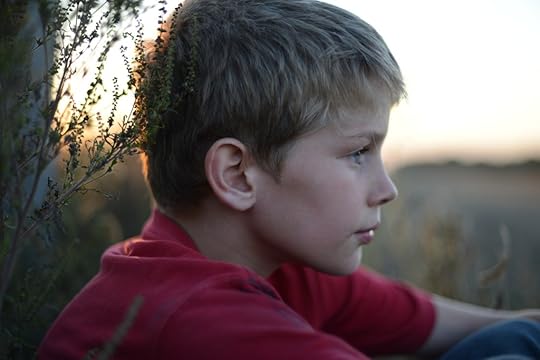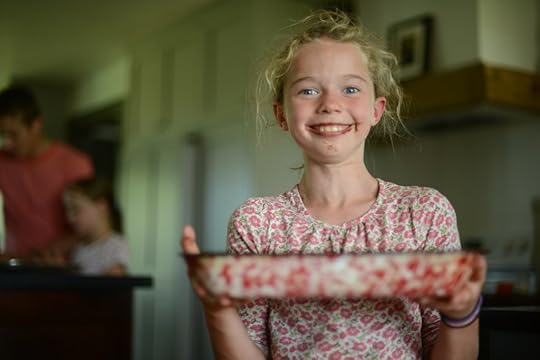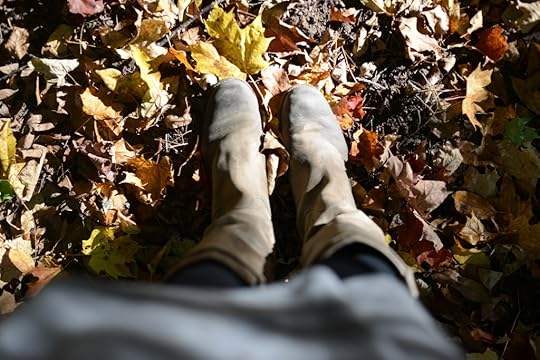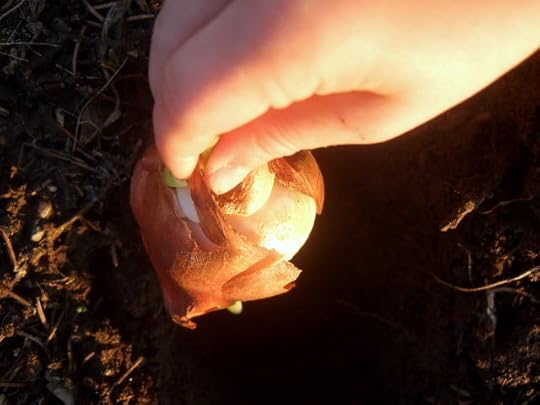Ann Voskamp's Blog, page 188
October 30, 2015
when you somehow need Forgiveness, Grace, & a Hope for our Enemies
I’ve had dinner a few times with my friends, Seth and Amber Haines, and they are some people. Rare luminaries, is really the only way to put it. These people speak bare honest words. You can find yourself just simply wanting a whole lot more of them. Seth, sometime in 2013, he woke to the realization that he had misplaced his dependency. Christ-espouser though he was—lay minister, committed church goer, and small group leader to boot—he had stuffed the pains of life, the micro-sufferings that are an unavoidable part of this human experience. He coped with the pain by over-drinking, though he supposed he could have used overeating, or over-shopping, or over-intellectualism. It’s not about any given vice of dependency, he says. It’s about the pain. The source of the pain? That’s a longer story. The remedy, though? He recorded it this way on December 5, 2013. It’s an unspeakable grace to welcome the honesty that is Seth Haines to the farm’s front porch today…
D ecember 5, 2013
“I thank you, God, for most this amazing day.”
I pray with E. E. Cummings and look through the morning window to see snow blanketing the ground in Fayetteville.
I walk to the front door in my pajamas, open the door, and stand barefoot on the cold concrete of the front porch. A winter chill is an exhilarating thing, a thing that reminds me that I am alive in the wide, wild world.
The flakes are small—spit snow, I’ve always called it—but they are falling fast and hard and are piling up on the ground.
A white blanket stretches across the neighborhood, into the town, and out into the rural areas. It stretches onto mountains and into valleys, covers the banks of the Illinois watershed, the sides of the Boston Mountains.
I imagine the view from Hawksbill, how the valleys below are filling with an iridescent beauty, how the elk are craning their necks upward in their morning calls, how their breath is swirling upward.








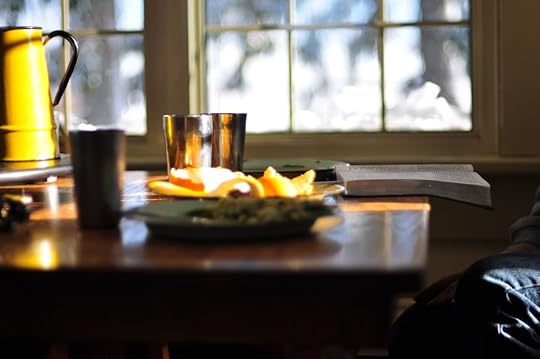
It is sure to be the only sound in the wild Ozark valleys this morning. I imagine them as living shofars trumpeting praise to the maker of these mountains.
The new morning snow deadens the sounds of the world. I hear no cars, no dogs barking. It is a still, silent morning. The snow blows across the porch in spirited gusts, and a tiny drift covers my toes. I dust them off, the stinging of the ice setting in, and I turn back into the house.
On my way to the coffee pot, the burn of thawing toes sets in. It’s a prickling heat.
I pour coffee from the pot.
Pain, whether great or small, is the reminder that we are not inanimate, plastic things. We are not machines meant to go about in numb, metallic, programmed action.
We are not fungible goods, items that when broken can be replaced with other unbroken items. We are meant to feel the pain of our un-thingness.
Pain is inevitable; it’s the irrefutable evidence of life.
It has been seventy-five days since my last drink, and sobriety has not come without much pain and effort.
There is a constant throbbing, an ever-present stinging. This is the sting of living in a mysterious world, of being broken by it, of being broken in it.
There is a salve for this, though. There is a way to make peace with the God of the past, present, and future.
Accepting the mysteries of God, His decision not to heal—this is only the starting place.
From there is pain and confusion and bitterness.
Going through it and taking a forgiving heart with me—this is the trick.
Yes, I offered one-time forgiveness to the faith healer who once promised me a pain free life if I mustered enough faith. But if the falling into addiction is a slippery slope of a process, then forgiveness must be a process too.
I am learning forgiveness is not often a single, shining event but a continual, repetitive act. A letting go, followed by another, and another. And I must learn to keep at it.
Forgiveness, requires that I go into the past, that I relive histories again and again until I am able to release all wrongs wrought by the frail humanity of others.
I know now what my therapist means when he says I must relive the pain, I must learn to master it. He means to say that I must learn to forgive it all.
The act of forgiveness, true Christ-based forgiveness, is an extension of love; it is seeing my accuser as a human, as one who acted from his own broken understanding of the world, who just did the best he knew how.
Forgiveness, true godward forgiveness, is the extension of unmitigated grace, the adoption of the prayerful hope that our enemies might receive no suffering from their imputation of suffering; it is the hope that they find a better hope.
Lord, forgive me, as I forgive my enemies.
It is a simple prayer. It is not difficult, but it is hard.
***
It is the first week of Advent, the season of Christ’s coming.
Emmanuel, God with us.
I repeat it this morning and consider the coming of Christ. Fully God, He came more than clothed in flesh and bone.
He came, instead, unified with flesh and bone, His inextricable godness woven into tingle-toed human experience.
This, I think, is the hope of hopes.
Through the garden He went, bending His will (“not my will but yours be done”) to the will of God.
Into the pain He went, into the crowd of men who ripped out his beard, who thorny-crowned Him the low-caste king of the Jews, who scourged Him, who mocked Him for the blasphemy that He claimed to be both man and God.
He walked straight into the heart of the pain of having His identity, the essence of who He was, attacked by men with rigid, systematic notions of God.
Defenders of the faith, of right theology, the Jewish leaders considered themselves.
Quellers of an insurrection, of uprising, the Roman guards were.
And Jesus was the middleman, the garment stretched to ripping between two peoples with very different axes to grind.
Jesus, subjected to the worst of humanity, hung, and in His last words prayed, “Father, forgive them, for they do not know what they are doing” (Luke 23:34).
He could have prayed, “Father, forgive them their sins.” After all, He forgave others their sins.
Had He meant, “Forgive them their sins,” though, He would have prayed it.
Instead, the connotation seems different, gentler.
Jesus recognized that they were unknowing. Instead, I wonder whether the phrase may be read with more human intuition: Father, forgive them; they are doing the best they know how.
***
Jesus, God with us, endured the worst punishment that men’s black hearts could conceive.
He bent His will to the mystery of suffering and walked headlong into the painful persecution of men, even men who knew not what they did.
He suffered them, though He could have reached back into his Old Testament book of tricks, could have unleashed the death angel or turned them all into pillars of salt.
He did not cry a mumbling word, and as He hung crucified, His parting shot to His accusers, His dying request to the Godhead, was simple.
“Father, forgive them.”
Lord Jesus Christ, Son of God, have mercy on me, a sinner.
Unify my flesh with your Spirit so that I might extend your forgiveness.
Seth Haines is an attorney and author who makes his home in the Ozark mountains.
His first book, Coming Clean: a Story of Faith (Zondervan 2015), is a raw account of his first ninety days of sobriety. A recovering alcoholic, Seth shares his journey through pain and doubt, and into the love of a healing and abiding God. He and his wife Amber Haines have four boys and two mutts and these lifelines of good words. Whatever’s about strangling you, that you can’t seem to find a way out of? Grab this stellar, transforming lifeline right here: Coming Clean: a Story of Faith.
[ Our humble thanks to Zondervan for their partnership of today’s devotion ]

October 29, 2015
Links for 2015-10-28 [del.icio.us]
why gratitude isn't just for Thanksgiving anymore...

October 28, 2015
when you need to trust & believe
As Crystal Bowman drove into the parking lot of Little Angels Preschool on a warm September morning in 1973, she was not smiling. Preschool was not her plan—she wanted to teach algebra. After a few weeks she began to hear God whisper, “Trust me. This is what I created you to do. I gave you the gift of storytelling so you can teach these little ones about Me—for to such is the Kingdom of Heaven.” Her on-going desire now is to tell little ones that God loves and cares for them very much. Through words in picture books, kids’ devotionals, or stories for beginning readers, she is reaching children all over the world with the message of God’s love. It’s a grace to welcome Crystal to the farm’s front porch today…
Are children really important in the grand scheme of big and global things?
Jesus thought so.
His disciples tried to shoo them away. Don’t bother the Master. But the Master opened His arms to welcome them and bless them (Matthew 19:14).
When the disciples later quibbled about who would be greatest in the Kingdom, Jesus called a little child over to Him.
He had the child stand among them.




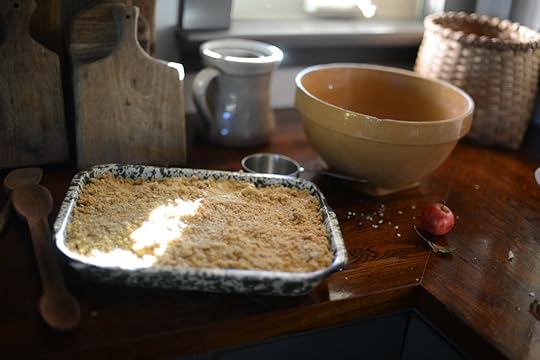


Jesus said, “What I’m about to tell you is true.
You need to change and become like little children. If you don’t, you will never enter the kingdom of heaven. Anyone who takes the humble position of this child is the most important in the kingdom of heaven.” (Matthew 18: 2-4) NIRV.
How do we change to become like little children?
Become like little children—innocent, with wide-eyed wonder in awe of God’s created things.
Children pause to gaze at a tiny black spider resting in the center of its perfectly spun geometric silk. They twirl and giggle with tongues outstretched to catch the first snowflake of winter. Children punctuate the end the day by blowing kisses to the moon.
Children celebrate God’s created things.
So I wonder—do we celebrate God’s created things as children do, or do we miss them because of our goal achieving, stress inducing daily to-do lists?
Be in awe of God’s created things. Don’t stop celebrating.
Become like little children who are dependent on someone to provide for their needs.
Our Parent, God the Father, provides for us. From the shoes on our feet and the sweet potatoes on our plate, to the very air that we breathe, we are dependent on our Provider.
Water to quench our thirst, sunshine to warm our faces, husbands and children and grandkids—it’s all from Him. “Every good and perfect gift is from above coming down from the Father of heavenly lights” (James 1:17) NIV.
But dependence on God is more than needing things. We are dependent on God to care for us, as a parent cares for a child. “Come to me all who are tired and have heavy loads. I will give you rest” (Matthew 11:28) ICB.
We are dependent on God to comfort us when we are sick or hurt or grieving. “He heals the brokenhearted and binds up their wounds” (Psalm 147:3).
So I wonder —have we become too self-sufficient in our do-it-yourself society? Do we ask and thank?
Do we receive rest and comfort and healing from the Giver of all things?
Ask God for whatever you need. Thank Him for providing it all.
Become like little children who trust and believe what you tell them.
Believe without needing an explanation that God is who He says He is.
Believe that the One who parted the Red Sea is still performing miracles on earth this very day.
Believe that the words of God spoken to the prophets and written on scrolls are His words for you and me and everyone who reads them.
“But these are written so that you may believe that Jesus is the Christ, the Son of God, and that by believing you may have life in His name” (John 20:31) ESV.
So I wonder —in our days of instant information and knowledge at the click of a mouse, do we trust and believe God’s Word without question?
Accept God’s Word as truth.
Become like little children, assuming their humble position.
Because God Himself—Creator of all things, Provider, Healer, and Comforter humbled Himself for us by becoming a child. Jesus Christ, the living Son of the living God left His heavenly throne to enter the world as a Baby Human and sleep in dirty feeding trough for animals.
The shed was filled with animals—
oxen, cows, and sheep.
They stood around the manger
and watched the Savior sleep.
The Word became human and made His home among us.
John 1:14, NLT
And when the Christ child became a man, He stretched out His arms to bless little children and welcome them into His kingdom. As He neared the end of His time on earth, He stretched out His arms again—this time on a cross so we could exchange our sins for His righteousness.
“Yet to all who did receive Him, to those who believed in his name, He gave the right to become children of God” (John 1:12) NIV.
So I wonder—are we too proud to humble ourselves and assume the position of a little child? Is it too hard for us to accept a free gift without having to work for it?
Believe the miracle.
Accept the Gift of Forever.
Become a trusting child of God.
guest post by Crystal Bowman
Crystal Bowman is a former preschool teacher, author, and speaker. She began writing children’s books in 1993 and has since written more than 70 books for children and 3 for women. She has written books for many popular children’s series, such as Little Blessings, BOZ the Bear, MOPS (Mothers of Preschoolers), and I Can Read!
Travel through the alphabet in M is for Manger – a beautiful rhyming storybook that tells the story of Jesus’ birth. A classic to read to children year after year!
[ Our humble thanks to Tyndale for the partnership in today’s devotion ]

October 27, 2015
Links for 2015-10-26 [del.icio.us]
yes: "...microscopes, applied to the right things, also can help us recover a proper perspective." @Bloom_Jon
How Food Trucks Are Making School Lunch Cool
"...school districts are starting to lure their students into eating better..."

October 26, 2015
how to keep hoping when you really just want to give up
The earth’s cold under the finger nails.
I dig holes with a wedge of steel and around fringes of the domed sky, the clouds scud gray.
Dad had called first thing in the morning: if I had anything to do outside, today looked like the last day. Might be the last warm day to dig in bulbs, before autumn begins her blustery, muddy wrestle.
I’d nodded. Yes, Dad. Bulbs, today, will do. And last clean up of the flowerbeds. Thank you for calling, thinking of me, Dad.
I’d hardly hung up the receiver before it rang again, a friend, whose first words spoke of weather too: brooding storm bearing down.
“What do I do when I just don’t know how to go on?” Her voice cracks, flash of pain forking across skies.
I listen to expectations struck, her hopes snapped off in gale.
“Just a day to be sad, I guess,” she finishes, beaten.
“Today, I’m not up to trying to fix or solve any of it. Just grieving today.” And then the quiet rain of tears. Together, we let the lament come.
Then I gather bulbs. Pull out the spade, and go dig holes, because I’m just dirt with no answers, only prayers.
“Why do we have to dig so deep?” One of boy’s face reddens in the excavating. The Littlest Girl digs her own hole alongside mine.
“Well — some things are meant to really be laid down.”
“I’m going to drop mine in now.” The boy’s holding his bulb poised, looking my way for assurance.
“No!” Little One wails. “Don’t put the flower so far down in the dark!” She tries to wrest the bulb from his hand. I scoop her angst all up close.
“But it has to go down in,” I brush the hair out of her eyes, kiss tip of that pug nose. Because sometimes, Child — hope’s waiting is dark.
She turns her face up towards mine and our cheeks brush.
“Will we have to dig them up to get the flowers after the snow?” I squeeze her tight.
“No, Girl. When He’s ready — all that beauty will come up through the black earth as if by themselves.”
We kneel down, drop a bulb into opening earth, then wait “for the forces above and below and beyond our control to work upon” all these things. The boy pats the earth down and over and the Girl, she watches.
We bury hope in a tomb of its own.
Like the faith diggers do every day. We bury our swollen prayers in Him who’s raised from the tomb.
We lay our hope, full and tender, into the depths of Him and wait in hope for God to resurrect something good.
Good always necessitates long waiting.
Every tulip only blossoms after cold months of winter wait. Every human ever unfurled into existence through nine long months of the womb waiting. And the only kingdom that will last for eternity still waits, this millennia-long, unwavering-hope for return of its King. Instead of chafing, we accept that waiting is a strand in the DNA of the Body of Christ.
That this waiting on God is the very real work of the people of God.
The boy digs another hole and I drop a bulb, life warm, into depths as dark as my friend’s sadness today.
Every person needs hope planted at the bottom of their hole.
Because that is the thing:
Hope is what holds a breaking heart together.
Hope in a Big God is what frees from big fears.
Hope is a thing with keys…..
Maybe I could plant a bit of hope in my friend’s ache?
I smile all the drive over to my friend’s. Knock on the front door. Read her confusion when she opens her front door, finds me standing there.
“Gotta little spade I can borrow?” I grin, hold out a hand full of bulbs.
“I just wanted to tuck some hope into that hole today. He’ll resurrect good things out of this too– hold on…. ‘Blessed are all who wait.’”
Her chin trembles and she nods.
“They’ll be pink. Tall.” I show her hope with my hands.
“In the corner of the front flower bed? So I can see them from the window.” She manages a smile.
I grab her hand, squeeze tight.
And we live in wait —
because there’s an old and steadying wisdom cupped in the curve of just those two words, ‘Hope and Wait.”

October 24, 2015
Only the Good Stuff: Multivitamins for Your Weekend [10.24.15]
Happy, happy, happy weekend!
Some real, down in the bones JOY to celebrate today! Links & stories this week 100% guaranteed to make you smile a mile wide & believe like crazy in a Good God redeeming everything — and that there’s love everywhere & for ((you))! Serving up only the Good Stuff for you right here:
www.facebook.com/MarcinSobasPhotography / www.marcinsobas.com
www.facebook.com/MarcinSobasPhotography / www.marcinsobas.com
www.facebook.com/MarcinSobasPhotography / www.marcinsobas.com
www.facebook.com/MarcinSobasPhotography / www.marcinsobas.com
www.facebook.com/MarcinSobasPhotography / www.marcinsobas.com
farm girl loves fields. you have gotta come walk with me
oh, yeah — there are days like this
Emily Gibson
Emily Gibson
Emily Gibson
after the week you’ve had — can I just lean over & hand you a quiet, perfect walk in a box?
I’ve felt just like this about rain before, I have
now, this is how it’s done, people — just like this
now this is just straight up way too much fun

This week’s Sticky Note for Your Soul:
FREE daily printables to cheer you on!
Simply fill in your email here and the whole library of free printables and tools unfolds right before you:
Subscribe/Sign-up here for immediate access to the whole library of free printables, framables & free tools!
Quiet Relief Near-Daily Quiet Relief in one Weekend BundleSIGN-IN »
our boys really do think this is really happening
Winning Image- The eye of a honeybee (Apis mellifera) covered in dandelion pollen (120x) by Ralph Claus Grimm, Queensland, Australia
7th Place Evan Darling Memorial Sloan Kettering Cancer Center New York, New York, USA Starfish imaged using confocal microscopy (10x) Confocal
10th Place- Clam shrimp (Cyzicus mexicanus), live specimen (25x) by Ian Gardiner, Alberta, Canada
13th Place- Tentacles of a carnivorous plant (Drosera sp.) (20x) by Jose Almodovar, Puerto Rico, USA
okay — did you catch that? that up there is the eyeball of a bee!
look — just go be slack-jaw awed by the Nikon Small World competition:
NASA astronaut Scott Kelly just became the new record holder for most time in space by a US astronaut
pretty amazing, huh?

so the one guy said he was lonely. Double Dog Dare you to respond like this
okay, c’mon. how did he just do that?
Templo de Quechula in Chiapas, Mexico, revealed this month due to drought (photo by René de Jesús, courtesy Notimex)
true story: sometimes in the middle of your drought —
you find your faith resurface in surprising ways
you’ve got this: go dream impossibly big things
Heather Saunders
Heather Saunders
Heather Saunders
Heather Saunders
three dozen floral designers. one abandoned house. 36,000 flowers. Have you seen this?
nothing is beyond making into beauty
the book of Romans — not like you’ve ever experienced it before
officer caught completely red handed: going above and beyond...

Books on the Stack at the Farm
Parable Treasury, by Liz Curtiz Higgs:
so this is ridiculous. Our kids grew up on these parable stories from Liz Curtis Higgs. Hands down favourites that they asked me to read to them a million times. And literally: More than 1 million of these parable stories have been sold — so there’s the proof: These are classics. Childhood is made of the stuff of these wondrous stories, one for each eason — And now they’ve been compiled into one gorgeous, huge, padded treasury book — for $8.79. How is that even possible?
Any child you’d like to have a gift for a birthday, a holiday, or any “I just love you” day — buy a stack of these to have on hand. I promise you: Kids will absolutely love you — and your wallet will be thrilled.
You’re Welcome.
inspired
aren’t they absolutely darling? and then? then they go ahead & play the track from “Up” —
complete with Carl’s tennis-ball cane, the “Adventure Book” and even a “Squirrel!” reaction from the family dog.
everyone was a winner that night… so maybe somebody did or did not get choked up over this one
Jonathan Phillips
okay, so this bride got brave & cancelled her wedding at the last minute — (these things happen)
and straight up: what comes next is pretty extraordinary…
you know, there really are heroes & angels & glory around us everywhere, you know?
a face, a hand, and a heart that stayed… you have gotta watch this
just….for every single one of us, no matter what: amazing grace…

… behind closed doors & behind brave smiles, there’s a whole bunch of us marching on private battles nobody knows about, climbing hard mountains that nobody sees, wrestling tough things that nobody has any idea about. But us? We do hard & holy things.
We stay in play. We stay in the game. We stay in Him. Because the really mattering part? The mattering part is that:
Blessed is the one who perseveres & does the hard things.
Tough times never last but those who hang on tight to God always do.
That’s all for this weekend, friends.
Go slow. Be God-struck. Grant grace. Live Truth.
Give Thanks. Love well. Re – joy, re- joy, ‘re- joys’ again
Share Whatever Is Good.

October 23, 2015
when it feels like God is asking The Impossible of you…
so when I’ve sat across the table from my friend Vaneetha on many occasions, each time, not only do I not want the conversation not to end — I’m profoundly moved and deeply affected by this woman’s Jesus-saturated love.What she shares — is always unforgettable. She’s walked the hardest roads with the greatest grace — I could weep for the way this woman puts skin on Jesus’ love… There are no words to convey the privilege it is to share my friend, Vaneetha with you today from the farm’s front porch…..
guest post by Vaneetha Rendall
T he summer after he left was excruciating.
We had been married almost 20 years, endured countless storms, including burying a son together.
I would have never expected to be raising two adolescent daughters alone.
Separation, divorce, single-parenting was for other people. People I prayed for and took meals to. People who didn’t know Jesus.
Not me.
I wasn’t sure how a believing wife was supposed to respond.
Especially a wife who had been discarded.

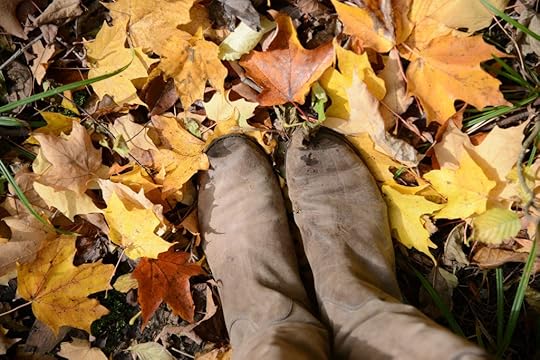
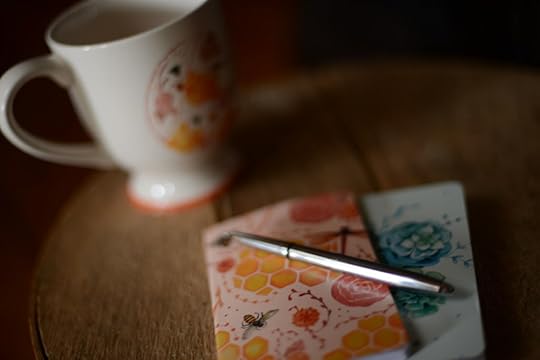
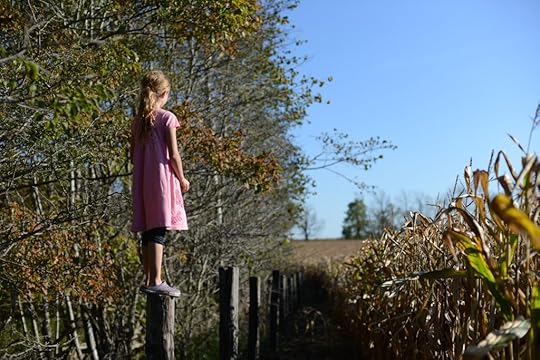
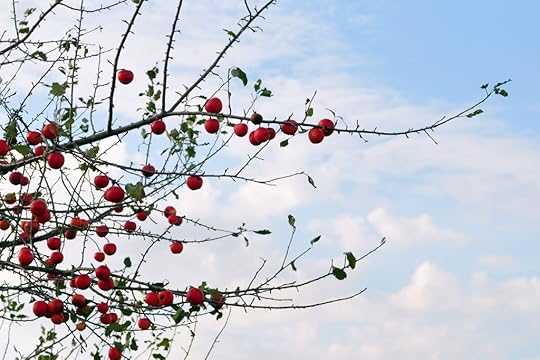
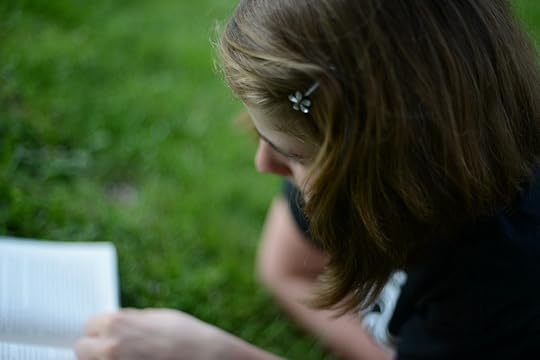
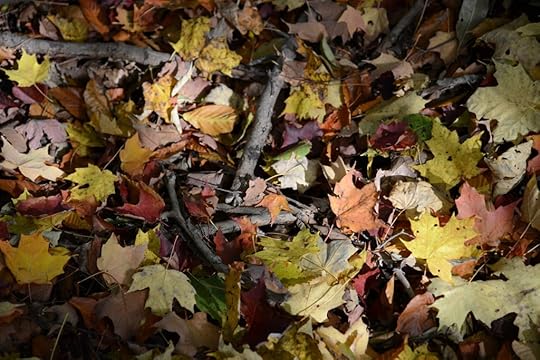
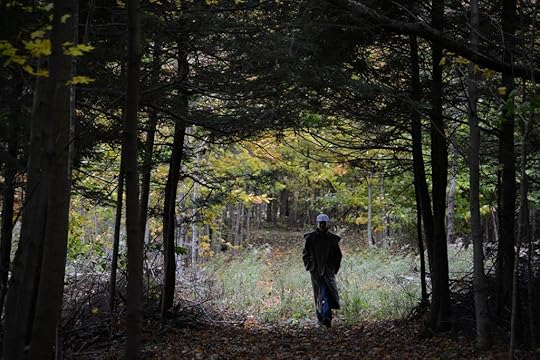

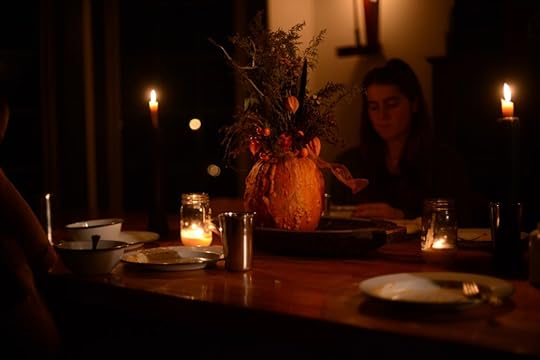

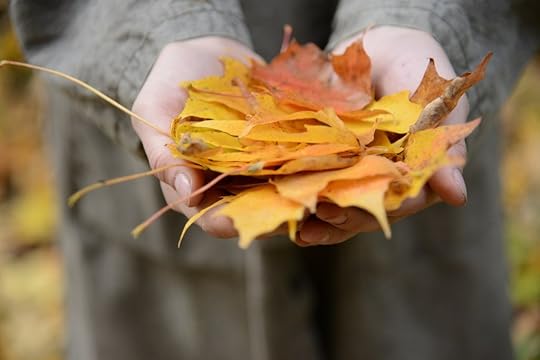
No one gave me a script. I knew we were supposed to love our enemies but I couldn’t pray for people who had hurt me like this. Even if it would heap burning coals on their heads.
All I could do was pray that my pain and anger wouldn’t consume me.
Sometimes that worked.
But sometimes the pain was so intense I could scarcely breathe.
He had moved on. He wondered why I couldn’t. Why I had to hold on to the past. Why I couldn’t just let go.
How do you let go of a life?
One you had built together but is now in ruins. And now, after decades of work, you’re forced to start building another. Alone.
I felt battered and raw.
And then I read it. In a book I was reading about God’s crazy love for us.
God wanted me to forgive. Even in the midst of a hopeless mess, when I had no idea how this was all going to turn out, the first thing I needed to do was forgive.
It was unthinkable.
Forgiving was too hard. The wound too fresh. My bruises too tender.
Maybe 5 years later in a therapist’s office after everything had been settled and I had moved on. But not now. Maybe not ever.
But as I reread the words, I realized God was not merely asking me to forgive. He was asking the impossible.
I closed the book. I wanted to throw it against the wall. I was shocked that God would even suggest this.
How strong did He think I was?
But as I scanned the lines once more, tears cascading down my cheeks, I knew He had entrusted me with something precious.
Tell her about Jesus.
She, the woman who had splintered my life. Who was building her life on the ashes of mine. Who had wounded me so deeply, so permanently, and yet so callously.
I was a stranger to her. Unimportant. Someone who just stood in her way.
She got what she wanted. Why would I want her to know about Jesus? Why would I want her to share the one thing she hadn’t taken? Why should I care about her at all?
Because Jesus wanted me to. It was that simple.
He wanted me to pray for her. Really pray. Not pray that she would let go of my husband. Or make amends with me. Or focus on her repentance.
No, just pray that she would see the beauty of Him who died for her.
So I stayed up all night and wrote her a letter about God’s extravagant love and forgiveness.
I began by sitting at the computer, sobbing. This was crazy. What should I even say?
But as I prayed, God gave me the words, His words, of grace and forgiveness.
I must confess, I never thought I’d write this letter to you. I wanted to hate you, but somehow I could not. I, who have experienced Calvary love, knew that the God who died for me and for you would not let me hate.
…I have been asking God that you would truly experience abundant life.
…He says in His word, “I have loved you with an everlasting love. I have drawn you with lovingkindness…” Jeremiah 31:3
…The cross changes everything. We exchange our sin, our shame, our mistakes and regrets for His righteousness and grace and peace.
…You may wonder what my agenda is. I don’t have any hidden agenda but simply offer this letter to you in obedience to a life-giving, relentless God to whom I owe everything.
With every word I typed, I cried less and prayed more. Something was changing inside of me. I couldn’t explain it.
I am ashamed to admit how hard my heart was when I started. But by the time I dropped off my letter at the post office, I was radically different.
My bitterness had somehow evaporated. I wanted her to know Jesus and prayed that she would. That was more important than anything.
And after I left the post office, I wondered how God was going to use my offering.
Was she going to commit her life to Jesus? Was my sacrifice going to bear fruit? It had to, didn’t it? This was not my initiative. It was God’s.
I waited and prayed. For days. And then weeks. Then months.
I never heard back from her.
I was told she received it, but I have no idea what she thought. I hadn’t asked for a response, though I’d hoped to get one anyway.
My letter was written out of obedience. Grudging obedience to be honest.
I knew I would have no peace if I didn’t write it. I knew once God revealed His will to me, I had to follow through.
Months later, I was thinking about the situation, wondering why God had called me to write.
My letter seemingly had no impact at all. It had cost me so much, yet it had yielded no fruit.
Then I realized my actions had made a difference. A monumental, life-altering difference.
But the difference was in me.
Writing the letter kept me from being bitter. From giving in to self-pity and destructive anger. From wanting revenge.
Writing the letter transformed my identity from a wounded victim to a compassionate Christ-follower. It was one of the most freeing exchanges I’ve ever made.
And for that, I will always be grateful.
The words God used to convict me?
They were Frederick Buechner’s, quoted in Francis Chan’s book Crazy Love:
“The love for equals is a human thing–of friend for friend, brother for brother. It is to love what is loving and lovely. The world smiles.
The love for the less fortunate is a beautiful thing–the love for those who suffer, for those who are poor, the sick, the failures, the unlovely. This is compassion, and it touches the heart of the world.
The love for the more fortunate is a rare thing–to love those who succeed where we fail, to rejoice without envy with those who rejoice, the love of the poor for the rich, of the black man for the white man. The world is always bewildered by its saints.
And then there is the love for the enemy–love for the one who does not love you but mocks, threatens, and inflicts pain. The tortured’s love for the torturer. This is God’s love. It conquers the world.”
I echo that.
This is God’s love. It conquers the world.

My brave friend, Vaneetha Rendall is a follower of Jesus who is passionate about helping others find joy in the midst suffering. She has not walked an easy road but the extravagance of God’s love continues to amaze her. Vaneetha blogs here and is a regular contributor for Today’s Christian Woman and Desiring God.
Related resource items: My favourite fall mug : My favourite fall pocket notebooks: here and here

Links for 2015-10-22 [del.icio.us]
"...then they see how the Christians are reaching out with love and caring — that has to do something with their hearts." this...
Iraq’s Poorest are Rich In Hospitality
You’re doing amazing things, friends...
What I Came To Respect Most About Tim Keller (Even More Than His Preaching)
Yes, this: "Tim is the best example I have ever seen of covering shame with the gospel." @scottsauls

October 22, 2015
what if we can’t heal how we really want to — because We Don’t Want to Really Put Down Our Phones
so when the three oldest kids and a bunch of their friends and I met Jefferson Bethke — he knocked us all over with this brilliance, humour, and genuine care and warmth. I couldn’t esteem or appreciate this guy more. He’s the kind of guy you want in your faith community, down your street, hanging out around a campfire with his wife and baby girl being real and sharing real Jesus. Jefferson has that compelling story of overcoming a painful childhood of poverty and a broken home, and this gives him a unique perspective on the grace of God and the work of Jesus in his life and the lives of others. It’s this perspective that has catapulted him right into the national conversation regarding religion and spirituality, allowing his message to connect at a heart level with an audience ranging from atheists to nationally recognized faith leaders. Jefferson is quick to acknowledge that he’s not a pastor or theologian, but simply a regular, twenty-something who cried out for a life greater than the one for which he had settled. Along his journey, he discovered the real Jesus, who beckoned him beyond the props of false religion. It’s an absolute crazy grace to welcome him to the farm’s front porch today…
I t’s sad that today it’s normal for you to be at a restaurant with friends and you start talking only to make eye contact and realize the person sitting across from you is staring down—em>looking at their phone.
There’s a quick strike of insecurity and disappointment that you just talked to thin air, not another person.
Why? Because they weren’t in the present world, but a digital one.
One of the scariest things I don’t think we think about enough is that we have a tiny little machine in our pockets at all times that gives us access to a limitless world.
Unfettered access to anything.
And that’s exciting.

 Jefferson Bethke
Jefferson Bethke


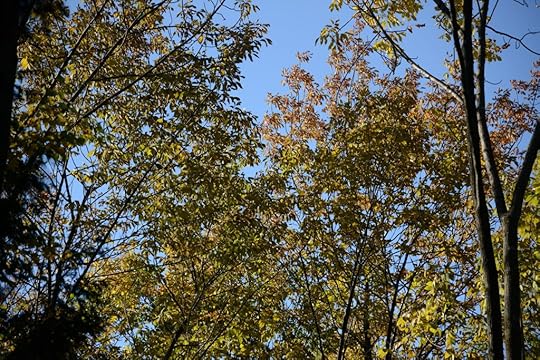

 Jefferson Bethke
Jefferson Bethke
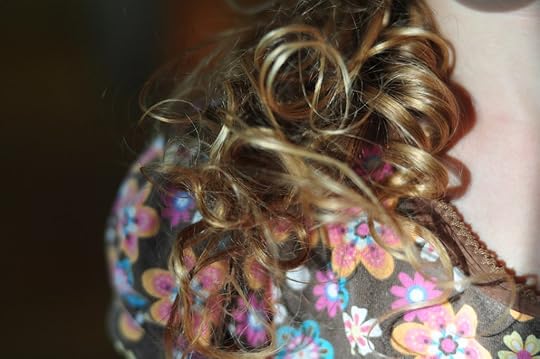

 Jefferson Bethke
Jefferson Bethke


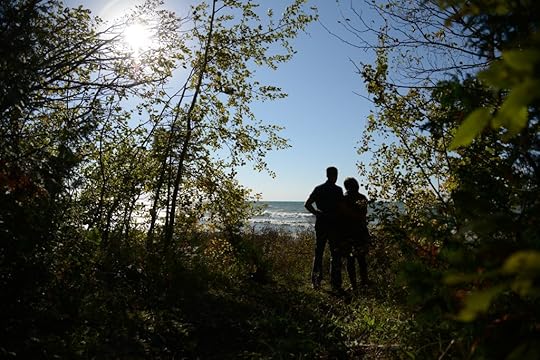
Sometimes more exciting than a meal with a friend, striking a conversation with a stranger in the grocery store, or leaning into hard conversations because they are awkward—or so we think.
What if our devices are actually killing us?
What if they are actually altering our very makeup and brain chemistry, so it wouldn’t be a stretch to say they are changing our humanity?
When something is as powerful as the world in our pockets we have to sit in that with weight, responsibility, and serious reckoning.
What’s worse is because of it — we can’t find healing.
We are broken, fragmented, cropped, and edited to death.
We never stop and pause.
Because healing comes from vulnerabilty. From coming out of hiding. From taking off the mask. Leaning into to a awkwardness. And that just doesn’t happen when our phones are out.
In a recent pew study they found that 82 percent of adults felt that the way they used their phones in social settings hurt the conversation.
Which means that 8 out of every 10 adults are willingly admitting their conversations are hurting because of how they use and engage with their phone.
Sherry Turkle, an MIT professor, is arguably the world’s leading scholar on how technology affects our humanity and relationships highlights the problem,
“In a conversation among five or six people at dinner, you have to check that three people are paying attention — heads up — before you give yourself permission to look down at your phone.
So conversation proceeds, but with different people having their heads up at different times.
The effect is what you would expect: Conversation is kept relatively light, on topics where people feel they can drop in and out.”
No one finds healing in a conversation where people feel they can “drop in and out.”
They find it in the trenches. The messes. The hard parts. The painful parts.
Honestly, I’m not sure I have some huge revelation or answer to this problem — I just know it’s happening.
But what if the problem doesn’t need to be a huge revelation?
What if the answer is simple—put down your phone.
Set boundaries. Make rules. Leave it at home. Turn it off.
This has worked beautifully with my wife Alyssa and I.
Feeling the unhealthy pull of our phones, and having a 17 month old daughter who we knew would follow the culture we set in our home, we made boundaries. It doesn’t come out at any tables.
We take a day a week where we fully turn it off. Sometimes when we go somewhere I know it’s tempting to pull it out, so instead I just decide to leave it at home.
And you know what happens?
In those margins I’ve created, that my phone used to replace, we talk.
Sometimes it’s normal small talk — but sometimes it’s deep and healing and connecting and incredibly life giving.
And that’s what we were created for.
Dear World: You’ve Got to See This
Jefferson Bethke currently lives in Maui with his wife Alyssa and one year old daughter, Kinsley. He is the author of the NYTimes bestseller , Jesus > Religion and the just released: It’s Not What You Think.
When Jefferson asked me to write the forward for It’s Not What You Think: Why Christianity is About So Much More Than Going to Heaven When You Die — I could not wait to devour every page. Jefferson authenticates the real deal of Christianity. He tears back the worn canvas of religiosity and he unfolds for us the breathtaking meaningfulness and worth and value of authentically living with Christ. He hands you these pages: This is your own declaration of freedom. He makes you not miss the life-changing value of your declaration of freedom. Because who can afford to live a life of missing Him? We’re tired of missing Him. Dismissing Him. Belittling Him —– and living little. It’s time to look behind the cheap frame of things — because it turns out: It’s not what you think. It’s infinitely more.
I poured out a bit of my heart in the forward of It’s Not What You Think because its the one book I wish I could hand out to every wrestler this year. Absolute five star solid read.

October 21, 2015
Links for 2015-10-20 [del.icio.us]
"Now I see how all the pieces fit together to fulfill His purpose..."

Ann Voskamp's Blog
- Ann Voskamp's profile
- 1369 followers




